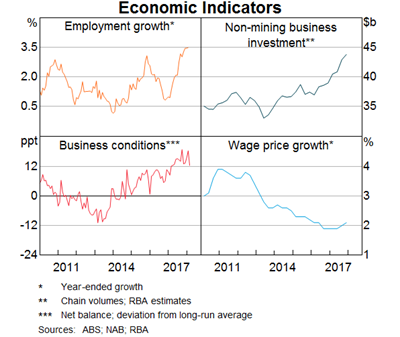Next RBA rate rise will be a shock: Philip Lowe
There hasn't been a rate rise in seven years, and RBA governor Philip Lowe has warned many households will be shocked.
He suggested however a rate rise will only occur once income lifts.
When addressing the Australia-Israel Chamber of Commerce this week, Lowe said the RBA expect a further pick-up in the Australian economy.
"Increased investment and hiring, as well as a lift in exports, should see stronger GDP growth this year and next," he stated.
"The better labour market should lead to a pick-up in wages growth. Inflation is also expected to gradually pick up. So, we are making progress."
Lowe suggested that a series of trade tension escalations could put the health of the global economy at risk and damage the Australia economy.
He said domestically, the high level of household debt remains a source of vulnerability, although the risks in this area are no longer building, following the strengthening of lending standards.
While he said a cash rate move will be more likely up than down due to the strengthening economy, Lowe suggested because the progress expected is gradual, the Reserve Bank Board "does not see a strong case for a near-term adjustment in monetary policy."
"While some other central banks are raising their policy rates, we need to keep in mind that their economic circumstances are different and that they have had lower policy rates than us over the past decade, in some cases at zero or even below," he said.
"A continuation of the current stance of monetary policy in Australia will help our economy adjust and should see further progress in reducing unemployment and having inflation return to target.
Lowe said one of the biggest factors is the low income growth.
Employment growth has lifted, however wage price growth has decline to near 10 year lows.
There has been a slight re-bound in the last year, but clearly not enough to warrant a cash rate rise
"Wage increases around two percent have become the norm in many parts of the country," Lowe said when addressing the Australia-Israel Chamber of Commerce this week.
He said three to four percent increases were the norm for most of the past two decades.
"This change is having a sobering effect on the finances of many households.
"It is also contributing to inflation being low.
"The latest data suggest that the rate of wages growth has now troughed, with a pick-up evident in the most recent quarter. A further lift is expected, but it is likely to be only gradual."




